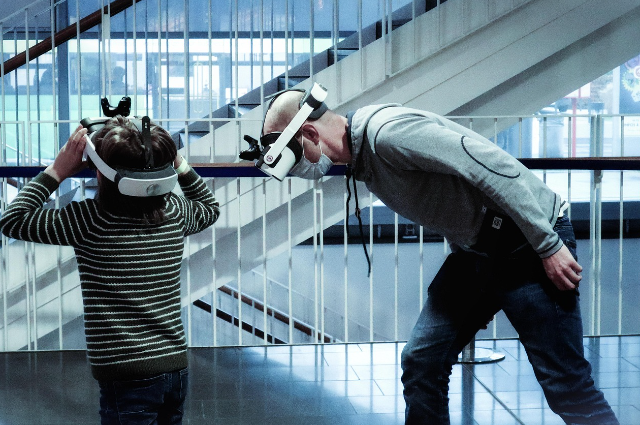
The convergence of generation and digital life has created a profoundly complicated and interconnected global society. This transformation, driven with the resource of the proliferation of the Internet, mobile technology, and Artificial Intelligence, has redefined almost every aspect of the human experience from verbal exchange and commerce to private psychology and global governance. It is a twin-edged sword, concurrently supplying unheard of opportunities for performance and connectivity at the same time as posing crucial demanding situations to privacy, mental well-being, and social equality.
The maximum on-the-spot and celebrated impact of virtual lifestyles is the improved worldwide connectivity. The net has collapsed geographical boundaries, transforming global conversation from a high-priced, time-consuming system into a direct, low-cost interplay. This ease of connection has fostered the creation of virtual communities, permitting individuals, mainly those in marginalised agencies or faraway areas, to find like-minded friends and mobilise for social or political movement, effectively overcoming physical isolation. On a private stage, it lets people hold relationships with distant buddies and circle of relatives who could otherwise be lost to time and distance.
In the international economic organisation, tools allow flexible business models (far-flung and hybrid), streamline operations, and allow for brief, data-informed decision-making. In areas like healthcare, technology has introduced more advanced diagnostics, personalised remedies, and telemedicine, enhancing accessibility and patient outcomes. The sheer quantity of know-how at our fingertips through the internet has also revolutionised education, democratising get admission to to studying resources on an unprecedented scale.
Every digital interplay from a seek query to a cellular charge generates a vast amount of Big Data, which is accrued, analysed, and commercialised by means of groups. This continuous virtual footprint, mixed with sophisticated algorithms and AI, creates huge privacy and security concerns. Individuals are constantly prone to information breaches, hacking, and unauthorised surveillance, leading to a palpable lack of management over private statistics. The difficulty is compounded by using the ethical implications of AI in surveillance and the potential for disinformation protection challenges, in which new technology ought to be developed without a doubt to discern honest content from manipulated information.
The psychological impact of the ubiquitous digital era is another grave challenge. In the commercial enterprise international, tools enable flexible work models (remote and hybrid), streamline operations, and allow for short, facts-knowledgeable decision-making. In areas like healthcare, technology has brought about better diagnostics, personalised medicine, and telemedicine, enhancing accessibility and patient outcomes. The sheer amount of knowledge at our fingertips via the internet has also revolutionised education, democratizing access to getting to resources on an unprecedented scale. Despite the improvements, the digital era is marked by a growing set of adverse effects, particularly regarding privacy and intellectual health.
The maximum essential issue is the digital divide, which refers to the disparity between those who have get admission to to and competence with virtual technologies and those who do not. This gap is regularly primarily based on gender, age, socioeconomic status, and geographic area, leaving vulnerable populations together, including the elderly, residents of remote or a long way off areas, and women, similarly within the lower back of gaining access to education, employment, and social mobility. In the process marketplace, whilst digitalisation creates new high-capacity roles, Information assessment (cybersecurity) concurrently renders other unskilled jobs out of date through automation. This necessitates non-stop upskilling and reskilling of the personnel to save you from mass unemployment and economic instability. Ultimately, navigating the technological panorama requires a conscious effort from governments, organisations, and those to strike a balance: harnessing technology’s power for worldwide prosperity at the same time as setting up moral guardrails to protect fundamental human rights and foster an inclusive, mentally healthy virtual society.
We are currently transitioning into the next incredible revolution of personal computing, transferring beyond two-dimensional displays toward Spatial Computing. This new paradigm, which encompasses technology like Augmented Reality (AR), Virtual Reality (VR), and Mixed Reality (MR), is largely converting how people interact with virtual data and their physical surroundings.
Spatial computing does not simply display facts; it integrates virtual factors into the real world in real-time, permitting customers to govern virtual items with natural human movements, along with hand gestures, voice commands, and eye tracking. This creates immersive, contextually applicable experiences wherein the boundaries between the bodily and digital blur, a central factor of the future "Industrial Metaverse".
The impact is transformative throughout industries: surgeons can view real-time three-D affected person records throughout an operation, engineers can collaborate on digital prototypes of aircraft engines, and subject technicians can see repair schematics overlaid onto equipment through AR glasses.
This shift towards an extra intuitive, 3-dimensional interface enhances efficiency and accessibility; however, it additionally introduces new human-machine interplay (HMI) challenges, together with the desire to design ethical tips for structures that interpret and respond to a user's physical moves and spatial context.
Reference:
- https://communication.uii.ac.id
- https://www.un.org
- https://medium.com
- https://www.pymnts.com
- https://www.ekascloud.com
